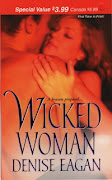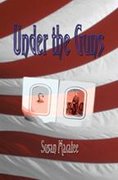Saturday, April 28, 2007
Genre-Jumping
As a teenager, I was preoccupied with science fiction and read that genre voraciously.
Yeah, I was geek!
Although I'd dabbled in writing for years, it wasn't until my youngest son started first grade that I stared writing toward publication focusing on stories for children and young adults. But I found it hard to break into that market. Meanwhile, I'd been reading about the enormous market for romance novels.
Hmm, I thought, maybe I should investigate that.
I started searching out and reading romances that looked interesting. There were historicals, time travels, paranormals and even futuristic romances. I was like a kid in a candy store. So many genres to chose from.
I joined Romance Writers of America four years ago, and haven't looked back. Right now, I've got one time-travel romance submitted to a publisher, one historical in the first draft stage, and a series of futuristic romances under development.
I even re-vamped my website to reflect my genre-jumping urges.
I don't want to be limited in what I write. While I love the Civil War era and plan to write more stories set in that period, I also want to travel to distant planets and meet aliens.
While writing is a lot of work, it should also be a lot of fun. I'm making every effort to keep it that way.
Friday, April 27, 2007
2007 Goals
Does it work if they're accomplished anytime in 2007? Or should I be adding new ones as I complete the old ones?
Needless to say, I'm hanging my head in shame...
Thursday, April 26, 2007
Serviettes, Important as Fans for Flirting and Function
The larger the better, in the case of the indispensable table setting pieces of cloth that matched the other table linens for the more formal occasions. The most formal occasions, even today, demand extra-large napkins, just as they did in the structured formalities often more familiar to Victorians.
Have a 'green' Victorian moment and learn a new napkin fold and please your guests, fictionally or otherwise. Match the napkins to a theme, and be even more Victorian.
Some sites:
http://www.napkinfolding.net/
http://www.customlinenservice.com/napkins.htm
http://www.wholesale-table-linens.com/napkin-folding.html?utm_source=google&utm_campaign=napkin+folding&utm_term=napkin+folding+techniques&utm_medium=cpc&gclid=CLHR2_r34IsCFQS7YAodMW02YQ
Kristin-Marie
Monday, April 23, 2007
Randomness
For some reason this quote made me think of the late 1800s when the Occult was so popular. It hasn't really grown less so, it's hugely popular now and just as controversial as it was then. Why the interest in the afterlife? Was it because they feared growing older? They needed to know what was on the other side?
Marie Corelli was a hugely popular novelist in the 1890s who numbered among her acquaintances ghost storytelling brothers A. C. Benson and R. H. ("Hugh") Benson. PM Gladstone visited her unannounced. Queen Victoria, King Edward VII, and Queen Alexandra all collected her books.
Yet her stories were more anti-religion than anything else. In Barabbas, her biggest international success, and its sequel, The Sorrows of Satan, "there is an underlying mystical strength to her glorification of Satan as a misunderstood adventurer in the modern world." http://www.victorianweb.org/authors/corelli/salmonson1.html
Her books are available on Amazon now, and maybe once my life settles down (haha, I just wrote a long ramble on how I have no time anymore) I'll read some of them. Just to see what they're like.
Wednesday, April 18, 2007
The Arranged Victorian Marraige, a Conundrum
Arranged marriages were still a norm of the Victorian era. Politics and inheritances were quite still the reasons just as in the Dark Ages. Although in bygone eras the political marriage affected all class levels of a society, serfs included. The pressure was still fervent in European aristocratic circles, or what remained of them, even those living on the American continents, as my story’s characters do for a time.
My Spanish characters are dealing with an arranged marriage. Their reality – as products of their times – was to accept marriage when it came, not necessarily to each other. In reality, people raised in the ways of my characters were not taught to hope for love or expect romance in an arranged marriage. They would hope for kindness, understanding, propriety, and even dignity. Still, the benefits of marriage within the same social class often outweighed the thrill of romance which was still thought of as a chance and fleeting moment to be grasped. Romance didn’t carry with it the expectation of longevity unlike what appeals to today’s romance audience and readership. (Rest assured that this author is part of that very same audience.)
Tolerating extramarital lovers was going out of vogue. Open arrangements were falling out of favor. Morality movements and laws being passed in other countries found imitations in decorum in Spain and its holdings. Spain was no longer the largest kingdom nor the most powerful country any longer, but its Borbon royalty and their aristocratic nobility were expected to set the heights of decorum, even in marriages; the same expectations, as it happens, are held up to the Bourbon House of today. The reason I point this out is that Queen Victoria's circle, including her Belgian cousin, Princess Charlotte (later Empress of Mexico) openly touted the Bourbon House in Spain as the height of expected decorum. The royal courts were still dictating behaviors of the rest of society, in something of a trickle-down effect.
Oddly difficult to explain is that extramarital lovers of arranged marriage partners were often enough allowed if scandal were avoided. Secretive affairs with lovers more powerful than a marriage partner were not quite favored but were less than frowned upon. As long as they were kept secret.
Catholicism was a dominating influence in Spanish society and so were its moral codes. Spaniards conducted a revolution when they counted among their grievances the openly adulterating Queen Regnent, Isabella II. Her marital bed had never pretended to belong to her king consort husband, Francisco, beyond the wedding night. Only a generation before, though, Isabella’s mother’s affairs weren’t considered to have interfered in her duties on the throne. The fact that Francisco claimed all dozen of Isabella’s offspring, and even named his collection of poodles after her lovers, tells of an understanding of duty quite opposite to proverbial fairy tale romances that often toss everything to the wind for the sake of instantaneous love.
Of course, my manuscript entails a fairy tale coming true. Conveying the seriousness of the obstacle of an arranged marriage is part of the challenge of being a modern writer portraying the past to modern sensibilities that expect love and marriage to automatically go hand in hand.
Kristin-Marie
Monday, April 16, 2007
Batter Up!
I had recently watched the movie, Glory, and noticed a scene near the beginning where a soldier hits a ball with a baseball bat.
Before this, I'd always thought of baseball as a turn-of-the-century sport. So, when did baseball become our national pastime?
I searched a few sites and found these facts.
"Americans began playing baseball on informal teams, using local rules, in the early 1800s." http://inventors.about.com/library/inventors.blbaseball.htm
About mid-century, sixteen clubs sent out delegates to a convention to standardize the rules. "The National Association of Base Ball Players was organized in 1857." http://en.wikipedia.org/wiki/Origins_of_baseball
The teams had names like: New York Mutuals, Philadelphia Athletics and Chicago White Stockings.
Prior to the Civil War, baseball competed for public interest with cricket and regional variants of baseball.
"Alexander Joy Cartwright of New York invented the modern baseball field in 1845." http://inventors.about.com/library/inventors/blbaseball.htm
And I always thought it was Abner Doubleday!
The game was based on the English game of rounders.
It seems the Civil War was what introduced the game that started in the Northeastern states, to the rest of the country. "During and after the Civil War, the movements of soldiers and exchanges of prisoners helped spread the game." http://en.wikipedia.org/wiki/Origins_of_baseball
The game they played, in that time period, was a bit different from baseball league play today. "High scores were the general rule; for even though the ball was soft, the base runner had to be hit by a thrown or batted ball before he was out. In one game between teams from the 13th Massachusetts and 104th New York, the Bay Staters won by a 66-20 score." Soldiers Blue and Gray ... p. 88
So, it seems the Civil War was, at least, partially responsible for the American pastime of organized baseball.
Sources: Soldiers Blue and Gray by James I. Robertson, Jr.
The Life of Billy Yank: The Common Soldier of the Union by Bell Irvin Wiley
http://inventors.about.com/library/inventors/blbaseball.htm
http://en.wikipedia.org/wiki/Origins_of_baseball
Monday, April 09, 2007
New Year's Goals Revisited
1) Finish rewrite of Erin's Rebel.
Not only did I finish, but the full manuscript is now on the desk of the acquisitions editor at Medallion Press.
2) Revise outline of Katie Rose and write first draft.
The outline revision is finished and I'm one hundred pages into the first draft.
3) Enter 1 contest per month for Erin's Rebel.
I've entered 3 contests and gotten results for the first two. I didn't win or final, but I got fairly high scores. The third contest I won't get the results of until later this month.
4) Post 2 new blogs here and 2 per week on my personal blog.
So far this year I've posted 12 blogs on this site. On my personal blog www.susanmacatee.blogspot.com I've posted 6 blogs each for January and February, so I fell a little short, but I posted 9 blogs in March.
5) Start preliminary work on my futuristic romance.
I've started world-building and creating characters for my first futuristic romance.
So, aside from falling a little short on the blogging, I've done pretty well on my 2007 goals, so far.
Friday, April 06, 2007
Behind the Looking Glass of the Victorian London Scene: a Glimpse of London Society
Unarguably, the height of the Victorian era Society gathered around London during the reign of Queen Victoria. Ladder-climbers – socially or politically – were represented in London or were in attendance at court-and-function, themselves.
Why, is obvious. The fact that the British Empire was expanding to the largest domination in recorded history missed the attention of very few. Pomp and circumstance were at a peak, but with a different venue than during earlier times, including the Regency, due to Victoria’s permeating social influences. Beyond the morality laws and other movements attributed to her personal touch, she also changed London Society, in great part by not participating as fully or as openly as prior monarchs. There was rhyme and reason to her social behaviors.
For novel writers of the time period focusing on Victorian London and its influences, the tendency to include societal parties and shindigs may be the norm. I have yet to read a novel of the time period set in that area of the world and that societal ilk that doesn’t at least attempt to show a party, or two.
All well and good.
Small details tend to authenticate the novelistic guest lists. Queen Victoria was not a recluse, despite some popular misconceptions. She did adhere to a lifetime of mourning rituals and garb, but out of deference to her late, faithful Prince Consort rather than to shun Society. On the other hand, during and after her husband’s lifetime, Victoria attended the soirees and functions that would be considered “important.”
If a novelistic party were to be shown to be of high import, then it could be emphasized by an appearance from the Queen. Although many authors may be more fascinated by the playboy prince, Bertie, which I mention because most Society level settings in Victorian novels I’ve read seem to include him swankering through the party sets. Still, his attendance didn’t declare a host or hostess’ party as ‘important.’
A better gauge of societal-level ranking on the party scene would be to include an ambassador’s brief stopover at a party to declare it worthy of the highest ranks. Recall that ambassadors traditionally usurp the Queen or other female titled counterpart to a male reigning sovereign when being seated for the more formal of functions, even if it causes a reigning queen to sit at a lower-ranked table, as a result. Some courts, such as in London, boasted ambassadors from nearly any country which meant the most important tables at even an informal banquet might overflow with ambassadors before the royalty were seated. Therefore, even an ambassador from the lowest and poorest of countries in attendance at a Society hosts’ or hostess’ party elevate the party to a higher level of social prestige than one simply attended by a fun-loving Bertie or his kind.
Kristin-Marie








